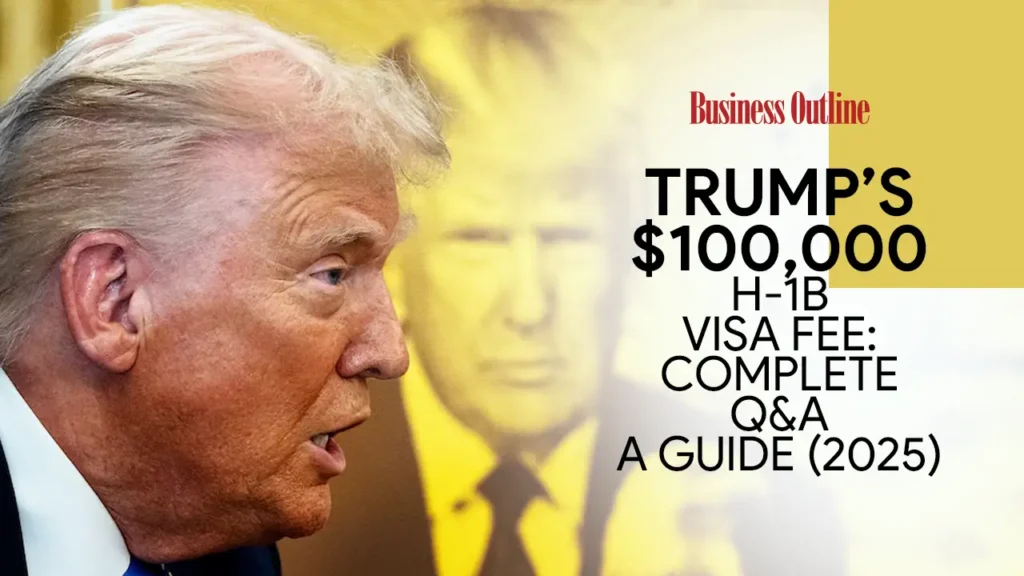Understand Trump’s new $100,000 H-1B visa fee—who pays, who’s exempt, and how it affects employers and applicants.
Q1. What is the H-1B visa?
The H-1B visa program was created in 1990. The idea behind the program was to allow United States companies to hire skilled foreign professionals from across the world. These professionals were mainly from IT, healthcare, engineering, education, and growing technology sectors. Visas are granted for 3 years and can be extended up to 6 years.
About 730,000 H-1B holders and 550,000 dependents currently live in the U.S.
Q2. What change did the Trump administration announce?
On September 19, 2025, the White House issued a proclamation stating a $100,000 fee for each new H-1B petition filed by employers. The rule came into effect on Sunday, September 21. According to Commerce Secretary Howard Lutnick, this step will ensure that companies prefer hiring Americans, and if they have to hire professionals from abroad, companies will only hire highly skilled top professionals.- https://www.uscis.gov/newsroom/alerts/h-1b-faq?utm_source
Q3. Who must pay the fee?
The company that hires the foreign professional will pay the fees.
Q4. Do current H-1B holders or travelers need to worry?
No. White House press secretary Karoline Leavitt clarified that current H-1B visa holders may leave and re-enter the U.S. as usual, and they will not be charged the $100,000 fee.
Q5. How does this differ from past costs?
Previously, government fees for an H-1B petition ranged roughly from $1,700 to $4,500, plus optional premium processing and attorney costs. Employers first paid a $215 lottery-registration fee and, if selected, several thousand more for filing. The $100,000 fee is a steep increase from the earlier fees.
Q6. Why impose such a steep fee?
The Trump administration believes that H-1B visas have been misused. Due to H-1B visas, native Americans are not getting the jobs, and companies are hiring foreign professionals at lower costs to the company. President Trump argues that the new rule will ensure that Americans get more jobs and only highly skilled foreign professionals are allowed to enter and work in America.
Q7. What industries are most affected?
Companies that are into technology will be impacted the most. For example, Amazon, Google, Meta, Microsoft, and Apple are top sponsors of H1-B visas. Companies in healthcare, education, and other STEM fields will also feel the heat.
Q8. What reactions have followed?
There have been mixed views on this change. Many economists calculate that imposing such a high cost on H-1B visas will discourage skilled immigration. India is the largest source of H-1B workers. The government officials from India have expressed concern about humanitarian impacts on families. Some business leaders, like Netflix co-founder Reed Hastings, praised the change for reserving visas for “very high-value jobs.
Q9. What should employers and applicants do now?
Employers considering new H-1B hires must budget for the $100,000 fee and watch for possible legal challenges or exemptions. Prospective applicants should consult immigration attorneys to understand how the rule affects upcoming petitions.
Sources
- S. Citizenship and Immigration Services – H-1B Specialty Occupations
- White House – Presidential Proclamations
- The Guardian – Trump’s $100,000 H-1B Visa Fee Explainer
- Reuters – U.S. Immigration News
Read more: Top Business Magazine


